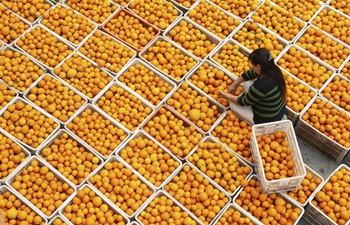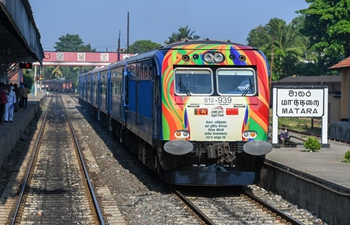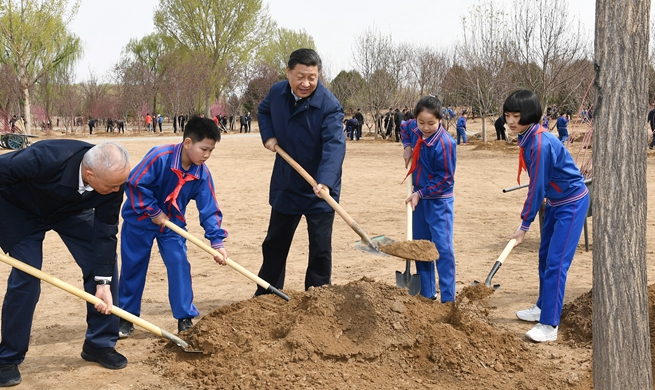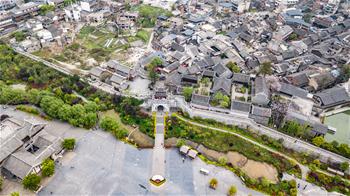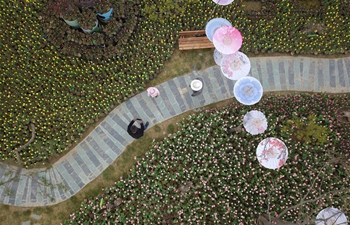LHASA, April 10 (Xinhua) -- More than 60 years ago, Kunsang Drolma was still a "Tralpa" (serf), slaving in a feudal society in southwest China's Tibet Autonomous Region. Fed up from oppression by the serf owner, she took her son Tashi Dondrup under her wing and started a life adrift.
Kunsang and her son later reached Cigmai in Lhodrak County of Shannan Prefecture. The village is about 3,750 meters above sea level. In 1959, the democratic reform in Tibet shattered the feudal serfdom and gave new life to Tibet and ethnic people like Kunsang Drolma. Locals were given land, domestic animals and houses of their own.
"I did not feel like a human being during serfdom, until the government liberated us and gave me all these things," she said.
The year 2019 marks the 60th anniversary of the campaign of democratic reform in Tibet. Drolma, 84, lives a prosperous life with her family of five generations.
After receiving land and animals following the reform, the mother and her son were finally able to settle down. As new crop seeds and agriculture tools were later handed out to them, the family began to have extra zanba (roasted barley flour) and buttered tea. Her son Tashi Dondrup married and had a daughter called Tsezhoen. It was a family of joy, Kunsang said.
And the best was yet to come.
A collective economy was gradually developed in Cigmai. Her son Tashi Dondrup managed to invest 50,000 yuan (7,448 U.S. dollars) in a local construction team and another 10,000 yuan in a Tibetan chicken-raising farm. He can receive up to 4,000 yuan in dividends each year.
While the old dog days were over, Tashi Dondrup and his mother Kunsang grew old, and Tashi's daughter Tsezhoen, whose husband died in a car accident, began to take over responsibility for supporting the family. In the past few years, she has taken care of the 0.27 hectares of land, nine cows and 93 hectares of grassland. The properties help churn out up to 500 kg of crops and lots of butter.
The government also subsidizes the family. Tashi Dondrup and Kunsang Drolma can each receive 1,800 yuan of pension annually.
"The government also gives us subsidies for grassland and for living in border areas, which can reach about 30,000 yuan a year," Tsezhoen said. "We really benefit from these policies."
Last year, a housing project was launched in Cigmai, where locals are able to get new houses. Facilities such as grid wires, tap water and roads have all been completed. The family will later move into their new house.
Tsezhoen's two daughters, 27-year-old Ngawang Lhamo and 25-year-old Shilok Tsomo, have both graduated from college. The elder sister is currently working as an accountant in the local construction team. Last year, she made 70,000 yuan. Her little sister is preparing for the civil service exam.
"Last year, Ngawang had a baby, and this year we will have a new house," Tsezhoen said. "Our family are truly enjoying great lives."




